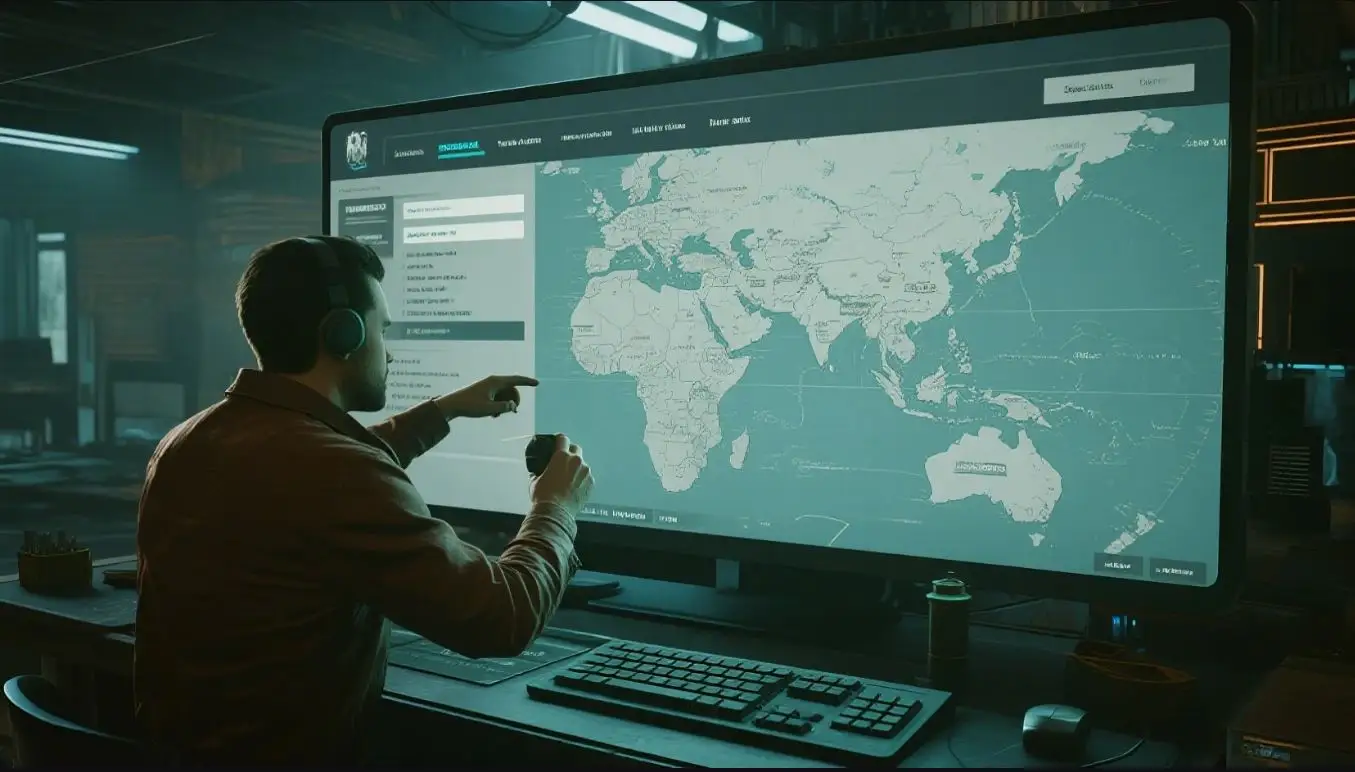Bài viết cung cấp 100 từ vựng và cụm từ tiếng Anh chuyên ngành Quản lí dự án xây dựng, giúp người học nắm vững thuật ngữ chuyên môn. Các từ vựng liên quan đến quy trình, vai trò và kỹ năng trong quản lý dự án, từ giai đoạn lập kế hoạch đến hoàn thành dự án, hỗ trợ giao tiếp hiệu quả.
Từ vựng nghề Quản lí dự án xây dựng
- Project Management – Quản lý dự án
- Construction Project – Dự án xây dựng
- Project Plan – Kế hoạch dự án
- Scope of Work – Phạm vi công việc
- Budget – Ngân sách
- Timeline – Thời gian thực hiện
- Milestone – Cột mốc
- Deliverables – Sản phẩm bàn giao
- Stakeholders – Các bên liên quan
- Contractor – Nhà thầu
- Subcontractor – Nhà thầu phụ
- Blueprint – Bản vẽ thiết kế
- Design Specifications – Đặc điểm kỹ thuật thiết kế
- Change Order – Đơn thay đổi
- Risk Management – Quản lý rủi ro
- Quality Assurance – Đảm bảo chất lượng
- Progress Report – Báo cáo tiến độ
- Site Inspection – Kiểm tra công trường
- Project Manager – Quản lý dự án
- Contract – Hợp đồng
- Construction Schedule – Lịch trình xây dựng
- Project Budgeting – Lập ngân sách dự án
- Resource Allocation – Phân bổ nguồn lực
- Site Plan – Kế hoạch công trường
- Cost Estimate – Dự toán chi phí
- Bid Proposal – Đề xuất thầu
- Permit – Giấy phép
- Building Code – Quy chuẩn xây dựng
- Project Charter – Điều lệ dự án
- Procurement – Mua sắm
- Contract Administration – Quản lý hợp đồng
- Field Operations – Hoạt động hiện trường
- Construction Management – Quản lý xây dựng
- Schedule Adherence – Tuân thủ lịch trình
- Project Lifecycle – Vòng đời dự án
- Completion Certificate – Giấy chứng nhận hoàn thành
- Cost Overrun – Vượt ngân sách
- Project Risk – Rủi ro dự án
- Safety Compliance – Tuân thủ an toàn
- Resource Management – Quản lý tài nguyên
- Project Scope – Phạm vi dự án
- Change Management – Quản lý thay đổi
- Construction Drawings – Bản vẽ xây dựng
- Value Engineering – Kỹ thuật giá trị
- Quality Control – Kiểm soát chất lượng
- Project Evaluation – Đánh giá dự án
- Budget Allocation – Phân bổ ngân sách
- Site Preparation – Chuẩn bị công trường
- Material Procurement – Mua sắm vật liệu
- Contract Negotiation – Đàm phán hợp đồng
- Project Schedule – Lịch trình dự án
- Work Breakdown Structure (WBS) – Cấu trúc phân công công việc
- Earned Value Management (EVM) – Quản lý giá trị thu được
- Construction Safety Plan – Kế hoạch an toàn xây dựng
- Site Safety Inspection – Kiểm tra an toàn công trường
- Project Baseline – Cơ sở dự án
- Project Team – Đội ngũ dự án
- Construction Contract – Hợp đồng xây dựng
- Risk Assessment – Đánh giá rủi ro
- Client Brief – Tóm tắt yêu cầu khách hàng
- Project Objectives – Mục tiêu dự án
- Resource Constraints – Hạn chế nguồn lực
- Construction Phases – Các giai đoạn xây dựng
- Document Control – Kiểm soát tài liệu
- Cost Control – Kiểm soát chi phí
- Project Timeline – Dòng thời gian dự án
- Submittals – Hồ sơ gửi duyệt
- Project Closeout – Hoàn tất dự án
- Field Report – Báo cáo hiện trường
- Change Request – Yêu cầu thay đổi
- Contract Compliance – Tuân thủ hợp đồng
- Budget Forecasting – Dự báo ngân sách
- Construction Log – Nhật ký xây dựng
- Inspection Checklist – Danh sách kiểm tra
- Cost Analysis – Phân tích chi phí
- Project Coordination – Phối hợp dự án
- Quality Management Plan – Kế hoạch quản lý chất lượng
- Site Logistics – Hậu cần công trường
- Construction Equipment – Thiết bị xây dựng
- Labor Costs – Chi phí nhân công
- Construction Progress – Tiến độ xây dựng
- Contract Terms – Điều khoản hợp đồng
- Project Documentation – Tài liệu dự án
- Scope Creep – Mở rộng phạm vi
- Resource Scheduling – Lịch trình tài nguyên
- Contractual Obligations – Nghĩa vụ hợp đồng
- Project Deliverables – Sản phẩm dự án
- Schedule Management – Quản lý lịch trình
- Construction Standards – Tiêu chuẩn xây dựng
- Procurement Process – Quy trình mua sắm
- Project Risk Management – Quản lý rủi ro dự án
- Site Conditions – Điều kiện công trường
- Performance Metrics – Chỉ số hiệu suất
- Construction Permit – Giấy phép xây dựng
- Cost Tracking – Theo dõi chi phí
- Budget Review – Xem xét ngân sách
- Project Review – Đánh giá dự án
- Contract Management – Quản lý hợp đồng
- Work Schedule – Lịch làm việc
- Construction Progress Report – Báo cáo tiến độ xây dựng
Bài viết sử dụng thuật ngữ trên
- Project Management: “Effective project management is crucial for the successful completion of construction projects.”
- Construction Project: “The construction project is scheduled to be completed within six months.”
- Project Plan: “The project plan outlines all the tasks and deadlines for the upcoming building phase.”
- Scope of Work: “The scope of work for the new office building includes detailed specifications for both interior and exterior construction.”
- Budget: “We need to review the budget to ensure that we stay within financial limits.”
- Timeline: “The project timeline shows that the foundation work should be finished by next month.”
- Milestone: “Achieving the milestone of completing the roof will significantly advance the construction project.”
- Deliverables: “The project’s deliverables include a completed building, landscaping, and a parking lot.”
- Stakeholders: “The project manager regularly updates stakeholders on the progress of the construction.”
- Contractor: “The contractor has been hired to oversee the construction of the new residential complex.”
- Subcontractor: “The electrician is a subcontractor who will handle all electrical installations.”
- Blueprint: “The architect reviewed the blueprint to ensure all design elements were correctly implemented.”
- Design Specifications: “The design specifications call for high-quality materials and modern fixtures.”
- Change Order: “A change order was issued to modify the original plan for the building’s facade.”
- Risk Management: “Risk management strategies are essential to address potential issues during construction.”
- Quality Assurance: “Quality assurance processes are in place to ensure that all construction work meets industry standards.”
- Progress Report: “The progress report indicates that the project is on schedule and within budget.”
- Site Inspection: “A site inspection revealed that the foundation work was completed according to the specifications.”
- Project Manager: “The project manager is responsible for coordinating all aspects of the construction project.”
- Contract: “The contract outlines the terms and conditions agreed upon by both parties involved in the project.”
- Construction Schedule: “The construction schedule provides a detailed timeline for each phase of the building process.”
- Project Budgeting: “Project budgeting involves estimating and controlling costs to keep the project within financial limits.”
- Resource Allocation: “Effective resource allocation ensures that the right materials and labor are available when needed.”
- Site Plan: “The site plan illustrates the layout of the building and surrounding areas.”
- Cost Estimate: “A detailed cost estimate helps in forecasting the overall expenditure for the project.”
- Bid Proposal: “The bid proposal submitted by the contractor was evaluated and approved for the construction work.”
- Permit: “Before starting construction, the contractor must obtain the necessary permits from local authorities.”
- Building Code: “The building code sets forth the requirements for construction to ensure safety and compliance.”
- Project Charter: “The project charter defines the objectives and scope of the construction project.”
- Procurement: “Procurement of materials and services is a critical component of the construction process.”
- Contract Administration: “Contract administration involves managing and executing the terms of the construction contract.”
- Field Operations: “Field operations include all activities taking place on the construction site.”
- Construction Management: “Construction management involves planning, coordinating, and supervising the construction process.”
- Schedule Adherence: “Schedule adherence is crucial to ensure that the project is completed on time.”
- Project Lifecycle: “Understanding the project lifecycle helps in managing each phase of the construction project effectively.”
- Completion Certificate: “A completion certificate is issued once the building meets all necessary requirements and standards.”
- Cost Overrun: “A cost overrun occurred due to unforeseen expenses in the construction process.”
- Project Risk: “Identifying project risks early helps in developing strategies to mitigate potential issues.”
- Safety Compliance: “Safety compliance measures are implemented to protect workers on the construction site.”
- Resource Management: “Effective resource management ensures that materials and labor are used efficiently throughout the project.”
- Project Scope: “The project scope outlines all the work required to complete the construction project.”
- Change Management: “Change management processes help in handling modifications to the project scope or design.”
- Construction Drawings: “Construction drawings provide detailed visual representations of the building design.”
- Value Engineering: “Value engineering focuses on improving the project’s value by optimizing costs and performance.”
- Quality Control: “Quality control measures are in place to monitor and ensure the quality of construction work.”
- Project Evaluation: “Project evaluation involves assessing the success and performance of the construction project.”
- Budget Allocation: “Budget allocation determines how funds are distributed among various aspects of the project.”
- Site Preparation: “Site preparation involves clearing and leveling the land before construction begins.”
- Material Procurement: “Material procurement ensures that all necessary supplies are acquired for the project.”
- Contract Negotiation: “Contract negotiation involves discussing terms and conditions to reach an agreement between parties.”
- Project Schedule: “The project schedule outlines the timeline for each phase of the construction process.”
- Work Breakdown Structure (WBS): “The Work Breakdown Structure (WBS) breaks down the project into manageable tasks and subtasks.”
- Earned Value Management (EVM): “Earned Value Management (EVM) helps in tracking project performance and progress.”
- Construction Safety Plan: “The construction safety plan outlines procedures and protocols to ensure a safe working environment.”
- Site Safety Inspection: “Regular site safety inspections are conducted to identify and address potential hazards.”
- Project Baseline: “The project baseline serves as a reference point for measuring project performance and progress.”
- Project Team: “The project team includes all individuals responsible for executing various tasks within the construction project.”
- Construction Contract: “The construction contract specifies the responsibilities and obligations of the contractor.”
- Risk Assessment: “A risk assessment identifies potential risks and develops strategies to manage them.”
- Client Brief: “The client brief provides detailed information about the client’s requirements and expectations for the project.”
- Project Objectives: “The project objectives outline the goals and desired outcomes of the construction project.”
- Resource Constraints: “Resource constraints refer to limitations in materials, labor, or equipment that impact the project.”
- Construction Phases: “The construction phases include planning, design, procurement, and execution.”
- Document Control: “Document control involves managing and organizing project documents to ensure accuracy and accessibility.”
- Cost Control: “Cost control measures are implemented to monitor and manage expenses throughout the project.”
- Project Timeline: “The project timeline provides a visual representation of key dates and deadlines for the construction project.”
- Submittals: “Submittals include detailed drawings and documents that must be reviewed and approved before construction.”
- Project Closeout: “The project closeout phase involves finalizing all aspects of the project and ensuring that all deliverables are completed.”
- Field Report: “A field report is generated to document observations and progress on the construction site.”
- Change Request: “A change request is submitted to modify the original project plan or scope.”
- Contract Compliance: “Contract compliance ensures that all parties adhere to the terms and conditions specified in the contract.”
- Budget Forecasting: “Budget forecasting involves predicting future expenses and financial needs for the project.”
- Construction Log: “The construction log records daily activities, progress, and any issues encountered on-site.”
- Inspection Checklist: “An inspection checklist is used to verify that all construction work meets required standards and specifications.”
- Cost Analysis: “Cost analysis involves evaluating project expenses to identify areas for cost savings or adjustments.”
- Project Coordination: “Project coordination ensures that all tasks and activities are aligned and executed as planned.”
- Quality Management Plan: “The quality management plan outlines procedures for maintaining and improving construction quality.”
- Site Logistics: “Site logistics involves organizing and managing the flow of materials and equipment on the construction site.”
- Construction Equipment: “Construction equipment includes machinery and tools used for various building tasks.”
- Labor Costs: “Labor costs account for wages and benefits paid to workers involved in the construction project.”
- Construction Progress: “Tracking construction progress helps in assessing whether the project is on schedule.”
- Contract Terms: “The contract terms specify the rights and responsibilities of each party involved in the project.”
- Project Documentation: “Project documentation includes all records and reports related to the construction project.”
- Scope Creep: “Scope creep refers to the uncontrolled changes or expansions in the project scope.”
- Resource Scheduling: “Resource scheduling involves planning the use of materials and labor to optimize efficiency.”
- Contractual Obligations: “Contractual obligations are the duties and responsibilities outlined in the construction contract.”
- Project Deliverables: “Project deliverables are the specific outputs or results expected from the construction project.”
- Schedule Management: “Schedule management involves creating and maintaining the project timeline to ensure timely completion.”
- Construction Standards: “Construction standards set the criteria for quality and safety in building practices.”
- Procurement Process: “The procurement process involves acquiring materials, services, and equipment for the project.”
- Project Risk Management: “Project risk management involves identifying, analyzing, and mitigating risks throughout the project.”
- Site Conditions: “Site conditions refer to the physical and environmental factors that affect construction activities.”
- Performance Metrics: “Performance metrics are used to measure and evaluate the efficiency and effectiveness of the project.”
- Construction Permit: “A construction permit is required to legally begin building activities on the site.”
- Cost Tracking: “Cost tracking involves monitoring expenses to ensure they align with the project budget.”
- Budget Review: “A budget review assesses current spending and forecasts future financial needs.”
- Project Review: “The project review process evaluates overall performance and identifies areas for improvement.”
- Contract Management: “Contract management involves overseeing and enforcing the terms of the construction agreement.”
- Work Schedule: “The work schedule outlines when and how different tasks will be completed during the project.”
- Construction Progress Report: “The construction progress report provides an update on the current status and advancements of the building work.”
Bài tập
- Effective __________ is crucial for the successful completion of construction projects.
- The __________ is scheduled to be completed within six months.
- The __________ outlines all the tasks and deadlines for the upcoming building phase.
- The __________ for the new office building includes detailed specifications for both interior and exterior construction.
- We need to review the __________ to ensure that we stay within financial limits.
- The project __________ shows that the foundation work should be finished by next month.
- Achieving the __________ of completing the roof will significantly advance the construction project.
- The project’s __________ include a completed building, landscaping, and a parking lot.
- The project manager regularly updates __________ on the progress of the construction.
- The __________ has been hired to oversee the construction of the new residential complex.
- The electrician is a __________ who will handle all electrical installations.
- The architect reviewed the __________ to ensure all design elements were correctly implemented.
- The __________ call for high-quality materials and modern fixtures.
- A __________ was issued to modify the original plan for the building’s facade.
- __________ strategies are essential to address potential issues during construction.
- __________ processes are in place to ensure that all construction work meets industry standards.
- The __________ indicates that the project is on schedule and within budget.
- A __________ revealed that the foundation work was completed according to the specifications.
- The __________ is responsible for coordinating all aspects of the construction project.
- The __________ outlines the terms and conditions agreed upon by both parties involved in the project.
- The __________ provides a detailed timeline for each phase of the building process.
- __________ involves estimating and controlling costs to keep the project within financial limits.
- Effective __________ ensures that the right materials and labor are available when needed.
- The __________ illustrates the layout of the building and surrounding areas.
- A detailed __________ helps in forecasting the overall expenditure for the project.
- The __________ submitted by the contractor was evaluated and approved for the construction work.
- Before starting construction, the contractor must obtain the necessary __________ from local authorities.
- The __________ sets forth the requirements for construction to ensure safety and compliance.
- The __________ defines the objectives and scope of the construction project.
- __________ of materials and services is a critical component of the construction process.
- __________ involves managing and executing the terms of the construction contract.
- __________ include all activities taking place on the construction site.
- __________ involves planning, coordinating, and supervising the construction process.
- __________ is crucial to ensure that the project is completed on time.
- Understanding the __________ helps in managing each phase of the construction project effectively.
- A __________ is issued once the building meets all necessary requirements and standards.
- A __________ occurred due to unforeseen expenses in the construction process.
- Identifying __________ early helps in developing strategies to mitigate potential issues.
- __________ measures are implemented to protect workers on the construction site.
- Effective __________ ensures that materials and labor are used efficiently throughout the project.
- The __________ outlines all the work required to complete the construction project.
- __________ processes help in handling modifications to the project scope or design.
- __________ provide detailed visual representations of the building design.
- __________ focuses on improving the project’s value by optimizing costs and performance.
- __________ measures are in place to monitor and ensure the quality of construction work.
- __________ involves assessing the success and performance of the construction project.
- __________ determines how funds are distributed among various aspects of the project.
- __________ involves clearing and leveling the land before construction begins.
- __________ ensures that all necessary supplies are acquired for the project.
- __________ involves discussing terms and conditions to reach an agreement between parties.
- The __________ outlines the timeline for each phase of the construction process.
- The __________ breaks down the project into manageable tasks and subtasks.
- __________ helps in tracking project performance and progress.
- The __________ outlines procedures and protocols to ensure a safe working environment.
- Regular __________ are conducted to identify and address potential hazards.
- The __________ serves as a reference point for measuring project performance and progress.
- The __________ includes all individuals responsible for executing various tasks within the construction project.
- The __________ specifies the responsibilities and obligations of the contractor.
- A __________ identifies potential risks and develops strategies to manage them.
- The __________ provides detailed information about the client’s requirements and expectations for the project.
- The __________ outline the goals and desired outcomes of the construction project.
- __________ refer to limitations in materials, labor, or equipment that impact the project.
- The __________ include planning, design, procurement, and execution.
- __________ involves managing and organizing project documents to ensure accuracy and accessibility.
- __________ measures are implemented to monitor and manage expenses throughout the project.
- The __________ provides a visual representation of key dates and deadlines for the construction project.
- __________ include detailed drawings and documents that must be reviewed and approved before construction.
- The __________ phase involves finalizing all aspects of the project and ensuring that all deliverables are completed.
- A __________ is generated to document observations and progress on the construction site.
- A __________ is submitted to modify the original project plan or scope.
- __________ ensures that all parties adhere to the terms and conditions specified in the contract.
- __________ involves predicting future expenses and financial needs for the project.
- The __________ records daily activities, progress, and any issues encountered on-site.
- An __________ is used to verify that all construction work meets required standards and specifications.
- __________ involves evaluating project expenses to identify areas for cost savings or adjustments.
- __________ ensures that all tasks and activities are aligned and executed as planned.
- The __________ outlines procedures for maintaining and improving construction quality.
- __________ involves organizing and managing the flow of materials and equipment on the construction site.
- __________ includes machinery and tools used for various building tasks.
- __________ account for wages and benefits paid to workers involved in the construction project.
- Tracking __________ helps in assessing whether the project is on schedule.
- The __________ specify the rights and responsibilities of each party involved in the project.
- __________ includes all records and reports related to the construction project.
- __________ refers to the uncontrolled changes or expansions in the project scope.
- __________ involves planning the use of materials and labor to optimize efficiency.
- __________ are the duties and responsibilities outlined in the construction contract.
- __________ are the specific outputs or results expected from the construction project.
- __________ involves creating and maintaining the project timeline to ensure timely completion.
- __________ set the criteria for quality and safety in building practices.
- The __________ involves acquiring materials, services, and equipment for the project.
- __________ involves identifying, analyzing, and mitigating risks throughout the project.
- __________ refer to the physical and environmental factors that affect construction activities.
- __________ are used to measure and evaluate the efficiency and effectiveness of the project.
- A __________ is required to legally begin building activities on the site.
- __________ involves monitoring expenses to ensure they align with the project budget.
- A __________ assesses current spending and forecasts future financial needs.
- The __________ process evaluates overall performance and identifies areas for improvement.
- __________ involves overseeing and enforcing the terms of the construction agreement.
- The __________ outlines when and how different tasks will be completed during the project.
- The __________ provides an update on the current status and advancements of the building work.
Đáp án
- Project Management
- Construction Project
- Project Plan
- Scope of Work
- Budget
- Timeline
- Milestone
- Deliverables
- Stakeholders
- Contractor
- Subcontractor
- Blueprint
- Design Specifications
- Change Order
- Risk Management
- Quality Assurance
- Progress Report
- Site Inspection
- Project Manager
- Contract
- Construction Schedule
- Project Budgeting
- Resource Allocation
- Site Plan
- Cost Estimate
- Bid Proposal
- Permit
- Building Code
- Project Charter
- Procurement
- Contract Administration
- Field Operations
- Construction Management
- Schedule Adherence
- Project Lifecycle
- Completion Certificate
- Cost Overrun
- Project Risk
- Safety Compliance
- Resource Management
- Project Scope
- Change Management
- Construction Drawings
- Value Engineering
- Quality Control
- Project Evaluation
- Budget Allocation
- Site Preparation
- Material Procurement
- Contract Negotiation
- Project Schedule
- Work Breakdown Structure (WBS)
- Earned Value Management (EVM)
- Construction Safety Plan
- Site Safety Inspection
- Project Baseline
- Project Team
- Construction Contract
- Risk Assessment
- Client Brief
- Project Objectives
- Resource Constraints
- Construction Phases
- Document Control
- Cost Control
- Project Timeline
- Submittals
- Project Closeout
- Field Report
- Change Request
- Contract Compliance
- Budget Forecasting
- Construction Log
- Inspection Checklist
- Cost Analysis
- Project Coordination
- Quality Management Plan
- Site Logistics
- Construction Equipment
- Labor Costs
- Construction Progress
- Contract Terms
- Project Documentation
- Scope Creep
- Resource Scheduling
- Contractual Obligations
- Project Deliverables
- Schedule Management
- Construction Standards
- Procurement Process
- Project Risk Management
- Site Conditions
- Performance Metrics
- Construction Permit
- Cost Tracking
- Budget Review
- Project Review
- Contract Management
- Work Schedule
- Construction Progress Report











